If I could implore you to do one thing right now, my esteemed readers, it would be this: for goodness’ sake, don’t fall for the guilt-apportioning game the media’s opinion leaders have been playing in the aftermath of the US election.
Politics is a power struggle between people with vastly different ideas about what’s true, real and desirable. The differences spring from an endlessly complex interplay of factors: how you were brought up, whether you go to church, what clubs you belong to, what media you consume, who your friends are, what everyday experiences you have, and so on. And those experiences, in turn, are affected by an equally complex mix of factors: what color your skin is, what country you come from, what culture you grew up in, which values you hold dear, how much money you make, which problems you face, and so on.
All this informs your view of the world, which you use to attempt to make sense of reality. While reality itself does partly determine the meaning we assign to it, it doesn’t insist on any one specific meaning. So, while we all live in the same reality, we interpret it differently. Most of the time, the differences are negligible: at the day-to-day level, we agree sufficiently about most things. But some differences are radical. And that’s what politics is about.
One battle, one number, one winner
Politics is a colossal magnification of the differences in how we perceive the world around us. And an election is a simplified, brief magnification of that. In an election, time stops, and a complex, gradually evolving jumble of differences of opinion is frozen in a single statistical figure. Everything from hardcore racism to heartwarming humanism is boiled down at a single moment to one battle, one number, one winner.
And those results themselves, in turn, are immediately subjected to the social process of meaning-making: how true, real, and desirable are they? The result of this process, too, is infinitely varied. One person sees the demise of democracy; another sees its essence. One person sees a revolt taking place; somebody else sees a day like any other. One person sees an economic crisis rooted in class difference; the next sees a culture war rooted in a clash of moral values. One sees the sun coming back out; another sees a deep darkness falling.
The hazards of All-Explaining Finger-Pointing
In our media-dominated society, the meaning-making process is powerfully influenced by a professional class of opinion shapers: journalists, columnists, experts, politicians. It’s important to remember that the framework in which they operate – news items, talk show formats, columns, 140-character tweets – invites them to succumb to three all-too-human tendencies:
- Reductionism: Here’s One Big Theory that explains everything. (Works well on opinion pages and social media.)
- Polarization: Explanations aren’t gradual and overlapping – they’re opposed and mutually exclusive. (Works well on radio and TV talk shows.)
- Scapegoating: What went wrong, and who or what is to blame? (Works well in all media.)
We’re seeing a lot of all three as people scramble to explain the election results. A mishmash of Clear-Cut Explanations has been put forward, each contrasted with the Ideological Opponent’s rationale and pointing the finger at this or that Main Culprit.
There are the polls: If they hadn’t been so “utterly wrong,” more Clinton supporters would have shown up at the voting booth. The media: If they hadn’t given Trump all that “fact-free coverage,” he’d never have gotten so popular. The elites: If they weren’t so “out of touch,” ordinary people wouldn’t have voted for a charlatan. Social media: If they weren’t so “polarized,” people wouldn’t be living in bias-confirming “filter bubbles.” The Establishment: If Obama hadn’t “failed” and Clinton hadn’t been “aloof,” their polar opposite never would have risen to power. The masses: If they hadn’t been so “racist and stupid,” they wouldn’t have voted for an idiot. Politics: If the Republicans hadn’t “opportunistically” embraced Trump and the Democrats hadn’t thwarted Bernie Sanders “behind the scenes,” this never would have happened.
Three lessons for progressives
The problem with explanations like these is that, well, they’re reductionist, polarizing, and finger-pointing. They turn media realities into real realities, and isolated incidents into structural issues. Exceptions become rules. Differences become oppositions. Opinions become essences. Traits become groups. Factors become causes. Opponents become enemies.
Such explanations allow us the reassuring but misguided belief that politics is about Causes and Effects rather than an irreducible mess of factors. They produce an exaggerated and false sense of contrasts between people – the idea that everyone (except us and our Facebook friends) has gone crazy. And above all, they give us the misplaced idea that everything’s somebody else’s fault.
Don’t get me wrong: I’m not trying to normalize the situation. I’m not saying it won’t be bad, because it will be. People will suffer as a result of this election’s outcome. Just look at this long list of violent racist attacks on Americans of color committed the day after Trump’s win. People have every reason to be scared and angry.
These explanations turn differences into oppositions. Opinions become essences. Traits become groups. Factors become causes. Opponents become enemies
But the biggest problem with reductionist, polarizing, finger-pointing explanations is that they make those of us who are comfortable – who are less likely to be affected initially – into passive observers. They position us at a distance from political reality. In this sense, scapegoating looks a lot like part of the political divide-and-conquer strategy that has taken hold in so many places. Every time we blame everything on [insert broad collective noun here], we lump people together (“them”), distance ourselves (“us”), and project all the world’s ills onto others.
Politics, the polls, the media, the elites, the masses – just about everyone who’s used these terms since November 9 has done so to mean everyone but themselves. But politics, the polls, the media, the elites, the masses – they’re us. This is our reality, too. So the question we should be asking isn’t what went wrong or who’s to blame, but what role we ourselves play in political reality – and what we can do to push it in the direction we want.
To all the progressives who, like me, woke up on November 9 with a nasty hangover, I’d say that now is a good time to let go of three errors in our thinking. First, we don’t have a corner on the facts. Second, we don’t have a corner on morality. And third, being right is something we have to earn. To put it more plainly, people who don’t share our worldview aren’t stupid. People who don’t share our worldview aren’t bad. And if they don’t share our worldview, the fault is at least half ours.
What Trump’s election calls on us to do – and I include myself here – is to become genuinely curious about each other and each other’s realities and to start a conversation about how we can make things better.
Because the main person who will profit from generalizations, polarization, and finger-pointing will be the man who’s about to become president because of them.
—Translated from Dutch by Laura Martz and Erica Moore
More from The Correspondent:
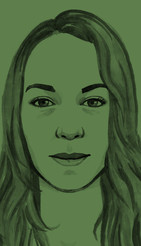
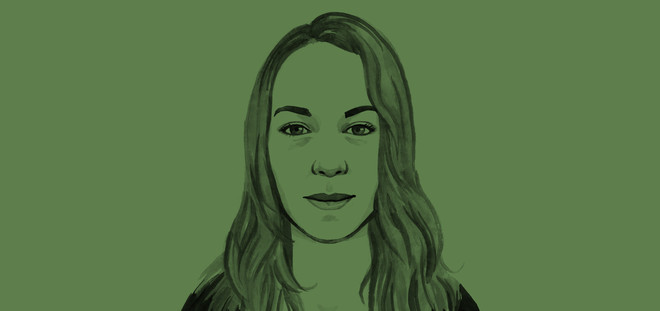 We’re heading into dark times. This is how to be your own light in the Age of Trump
Having studied authoritarian states for over a decade, I would never exaggerate the severity of the threat we now face. But an American kleptocracy is exactly where president-elect Trump and his backers are taking us. That’s why I have a favor to ask you, my fellow Americans.
We’re heading into dark times. This is how to be your own light in the Age of Trump
Having studied authoritarian states for over a decade, I would never exaggerate the severity of the threat we now face. But an American kleptocracy is exactly where president-elect Trump and his backers are taking us. That’s why I have a favor to ask you, my fellow Americans.
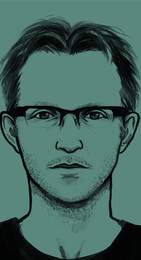
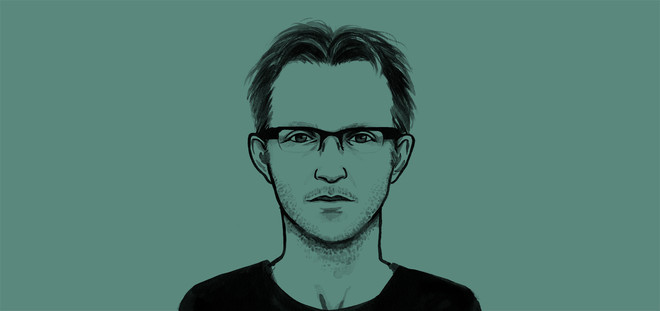 We have one year to make democracy work in Europe. Or else the Trumps take over
Both Brexit and Donald Trump painfully illustrate the dangerous road that all western democracies have taken: reducing democracy to voting. I propose another system, in an open letter to the President of the European Commission, Jean-Claude Juncker.
We have one year to make democracy work in Europe. Or else the Trumps take over
Both Brexit and Donald Trump painfully illustrate the dangerous road that all western democracies have taken: reducing democracy to voting. I propose another system, in an open letter to the President of the European Commission, Jean-Claude Juncker.
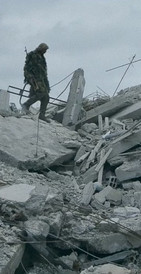
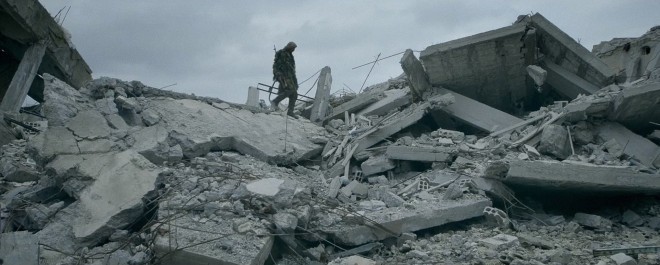 A day in the life of a sniper fighting ISIS
In few places has the fighting against the Islamic State been as heavy and sustained as in the Syrian town of Kobani, near the Turkish border. The Kurdish population there slowly but surely took back their streets from the terror organization. Filmmaker Reber Dosky made the trek to Kobani and came back with a unique portrait of a sniper in a battered city.
A day in the life of a sniper fighting ISIS
In few places has the fighting against the Islamic State been as heavy and sustained as in the Syrian town of Kobani, near the Turkish border. The Kurdish population there slowly but surely took back their streets from the terror organization. Filmmaker Reber Dosky made the trek to Kobani and came back with a unique portrait of a sniper in a battered city.

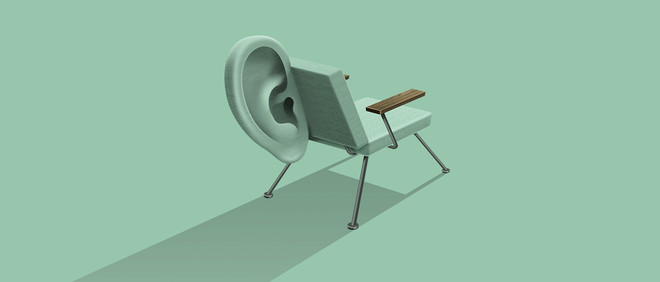 Operation Easy Chair, or how a little company in Holland helped the CIA bug the Russians
A small company from the Netherlands, the Dutch Radar Research Station, turns out to have worked for the CIA for decades. They secretly developed advanced listening devices which the U.S. then used against the Soviets. I came across this story from the Cold War era when an old friend of mine showed me documents that had belonged to his grandfather. Over the next year and a half, intelligence expert Cees Wiebes and I managed to reconstruct the previously unknown role the Dutch played in the Cold War.
Operation Easy Chair, or how a little company in Holland helped the CIA bug the Russians
A small company from the Netherlands, the Dutch Radar Research Station, turns out to have worked for the CIA for decades. They secretly developed advanced listening devices which the U.S. then used against the Soviets. I came across this story from the Cold War era when an old friend of mine showed me documents that had belonged to his grandfather. Over the next year and a half, intelligence expert Cees Wiebes and I managed to reconstruct the previously unknown role the Dutch played in the Cold War.



